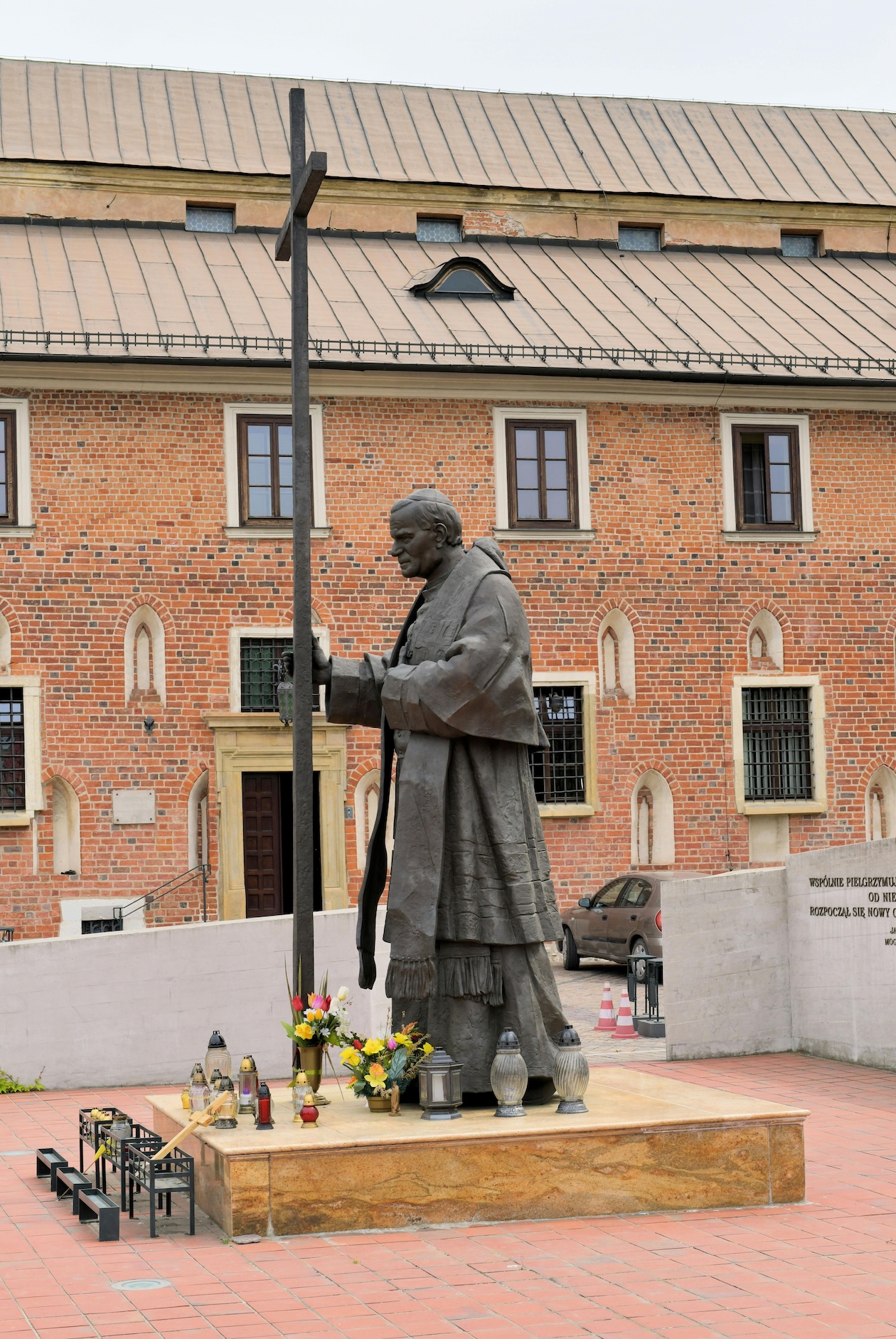Pope John Paul II is the “Pope of mercy.” This comes through very clearly in his 1980 encyclical Dives in Misericordia. Pope John Paul II practiced mercy throughout his life. He lived through two totalitarian regimes yet never learned to hate. Six months after publishing his encyclical on mercy, two bullets from attempted assassin Ali Agca’s gun nearly ended his life. He showed his mercy was real when he visited the would-be murderer in jail and pardoned him from the depths of his heart. His years of meditating on the parable of the Prodigal Son shaped his understanding of God’s mercy and influenced his teachings.

The parable of the Prodigal Son (Lk. 15:1-3; 11-32) shows the triumph of mercy over sin and is one of the most powerful stories of western civilization. Along with the parable of the lost sheep (Lk. 15:4-7) and the lost silver coin (Lk. 15:8-10), Luke’s gospel presents parables of mercy and calls to conversion throughout Chapter 15. The challenge to us is to recognize how we are lost and accept our own calls to conversion.
Mercy
Pope John Paul II reflects on the mercy that is present in the passage that we know as the Prodigal Son.
Although the word “mercy” does not appear, it nevertheless expresses the essence of divine mercy in a particularly clear way. This is due not so much to the terminology, as in the Old Testament books, as to the analogy that enables us to understand more fully the very mystery of mercy, as a profound drama played out between the father’s love and the prodigality and sin of the son (Pope John Paul II, Dives in Misericordia, 5).
Lost Son
To penetrate the meaning of the parable of the Prodigal Son, we must recognize how we are lost. Each one of us wanders into a foreign land every time that we fall into sin. We become like that rebellious son who does not recognize everything that he has received from his loving Father.
That son, who receives from the father the portion of the inheritance that is due to him and leaves home to squander it in a far country “in loose living,” in a certain sense is the man of every period, beginning with the one who was the first to lose the inheritance of grace and original justice (Pope John Paul II, Dives in Misericordia, 5).
Each one of us is that man. We all turn our backs on the home that God has prepared for us when we choose to live our lives independently from the plan that he has set out for us. Seeking a life of comfort or power or false independence, we reject the dignity we receive from being in our father’s house.
Repentance
A key moment in the story is when the prodigal son decides to repent. He seems pushed into this by his pitiful failure. Reduced to longing for the scraps left for the pigs he was tending, he recognizes the pitiful situation in which he finds himself. He longs to go home and eat the way his father’s servants do. At the end of the day, this is what moves each of us to repentance: we want to go home. God has created us and redeemed us; he has called us to himself. It is only when we are right with God that we can truly be at home.
Being Fair
Our sin strips us of our dignity, and only by returning to the Father can we regain it. So often, we complain that things are not “fair.” However, we should be careful with such a complaint because, if we are being honest with ourselves, we know that we do not really want things to be “fair.” If God dealt with us solely by justice or “fairness,” we would remain lost. It is only through his mercy that we are restored.
In the parable of the prodigal son, the term “justice” is not used even once; just as in the original text the term “mercy” is not used either. Nevertheless, the relationship between justice and love, that is manifested as mercy, is inscribed with great exactness in the content of the Gospel parable. It becomes more evident that love is transformed into mercy when it is necessary to go beyond the precise norm of justice-precise and often too narrow (Pope John Paul II, Dives in Misericordia, 5).
Meditating on the passage of the Prodigal Son is one of the best ways to understand the mercy of God and feel the need for a deeper conversion of heart. As we continue through Lent, let us truly repent of our sins and throw ourselves into the arms of our heavenly Father. We can do this by going to Confession and letting his mercy restore us to our role as beloved sons and daughters.
Subscribe to the newsletter to never miss an article.














